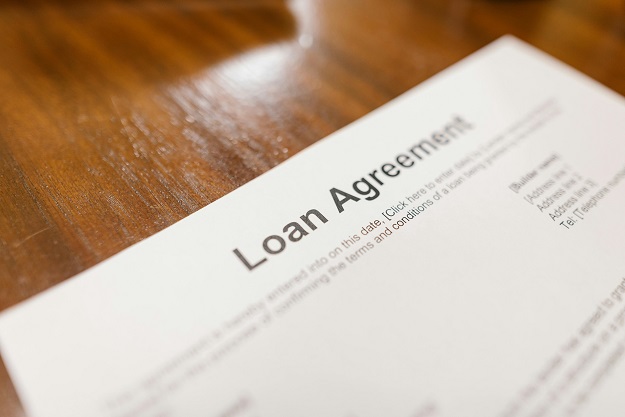
Navigating the world of Small Business Loans Canada Bad Credit can be challenging, especially for those with bad credit. Despite common misconceptions, individuals with less-than-perfect credit may still have several viable options for securing financing. Understanding these alternatives is crucial for entrepreneurs seeking to grow their businesses or cover essential expenses.
Many lenders are willing to work with borrowers who have bad credit, but the terms may vary significantly. It is essential to explore various funding sources, including alternative lenders, credit unions, and government-backed loans, which might offer more lenient criteria. This landscape provides opportunities that may not be immediately apparent to those who believe their credit history defines their ability to obtain funds.
By examining these options and armoring themselves with knowledge, small business owners can enhance their chances of securing the necessary capital. Utilizing the right resources and strategies can unlock financial support, opening doors to growth and success, even for those facing credit challenges.
Understanding Bad Credit Business Loans in Canada
Bad credit can pose significant challenges for small business owners seeking financing. Fortunately, Canada offers various options for those facing this situation. It is essential to grasp credit score fundamentals, the types of loans available, and the specific eligibility criteria for bad credit loans.
Credit Score Basics
In Canada, credit scores typically range from 300 to 900. A score below 600 is generally considered bad credit. Several factors influence credit scores, including payment history, credit utilization, and the length of credit history.
Individuals and businesses can obtain their credit reports from major credit bureaus like Equifax and TransUnion. Regularly reviewing these reports allows business owners to identify errors or discrepancies that could negatively impact their scores.
Improving a credit score involves timely payments, reducing debt, and maintaining a healthy credit mix. Minor adjustments can significantly enhance creditworthiness over time.
Types of Business Loans Available
Several types of loans cater specifically to individuals with bad credit in Canada. Options include:
- Secured Loans: These loans require collateral, such as property or equipment. They typically offer lower interest rates due to reduced risk for lenders.
- Unsecured Loans: These loans do not require collateral but may come with higher interest rates. Approval often depends on alternative factors beyond credit scores.
- Microloans: These smaller loans are often designed for startups or businesses needing quick cash. They may have flexible requirements.
- Merchant Cash Advances: These advances provide quick funds based on future credit card sales. They can be easier to access for those with poor credit but carry higher costs.
Eligibility Criteria for Bad Credit Loans
Lenders consider various criteria when assessing applications for bad credit loans in Canada. Key factors include:
- Business Revenue: Lenders often require proof of steady revenue to ensure the business can repay the loan.
- Time in Business: More established businesses may have better chances of approval compared to startups.
- Collateral: Offering collateral can enhance eligibility and potentially secure better loan terms.
- Personal Guarantee: Some lenders may require business owners to personally guarantee the loan, linking their financial liability to the business financing.
Understanding these criteria is crucial for prospective borrowers. Meeting specific requirements increases the likelihood of obtaining the necessary funds.
Lenders and Application Processes
Small business owners in Canada facing bad credit have several options when it comes to securing a loan. Understanding the differences between lenders, the application process, and required documentation is crucial for a successful loan application.
Traditional Banks vs. Alternative Lenders
Traditional banks often have stricter criteria for loan approval, particularly for applicants with bad credit. They typically evaluate credit scores, business history, and overall financial statements. The application process can be lengthy, often taking weeks or months.
Alternative lenders, on the other hand, may offer a more flexible approach. They often consider the potential of the business rather than solely focusing on credit scores. Alternative lenders may provide quicker approvals and require less documentation, making them a more accessible option for those with poor credit histories.
Preparing Your Loan Application
Before applying for a loan, business owners should prepare thoroughly. A well-articulated business plan is essential, outlining financial projections and strategies for growth. This plan provides lenders with insights into how the business intends to use the funds and its potential for repayment.
It’s also important for applicants to assess their credit situation. Understanding their credit score and correcting any inaccuracies can boost their likelihood of approval. Applicants should aim to demonstrate their commitment to improving their financial situation, which can positively influence a lender’s decision.
Documentation and Requirements
Lenders will require specific documents during the application process. Typically needed are financial statements, tax returns, and proof of business ownership. A detailed cash flow statement can further support the application by showcasing the business’s financial health.
Additionally, personal identification and any legal documents related to the business venture will be necessary. Different lenders may have varying requirements, so it’s vital for applicants to research ahead of time. Knowing what documents are needed helps expedite the process and enhances the chances of approval.
Zudio Online Shopping: A Comprehensive Guide to Affordable Fashion
Zudio online shopping has gained popularity for its accessible and trendy apparel. It offe…










